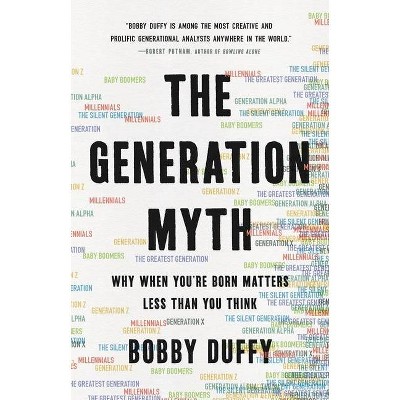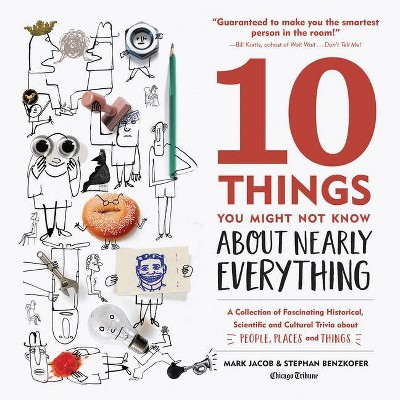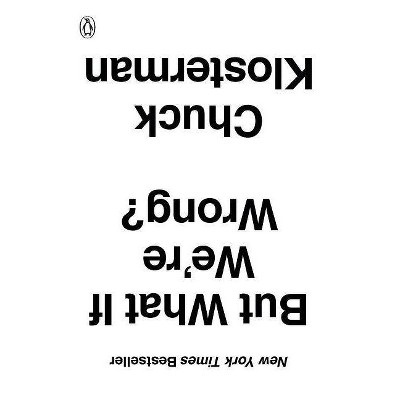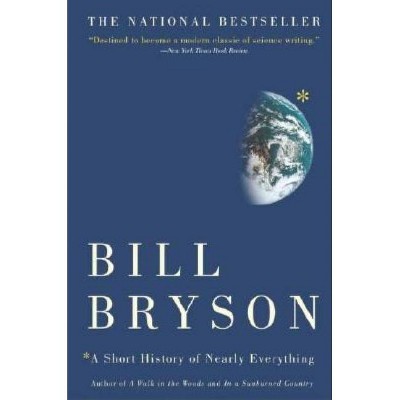Why We're Wrong about Nearly Everything - by Bobby Duffy (Hardcover)
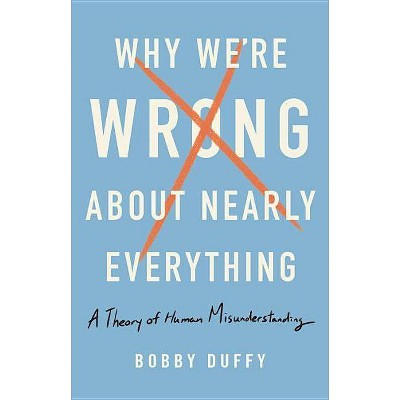
Similar Products
Products of same category from the store
AllProduct info
<p/><br></br><p><b> About the Book </b></p></br></br>A leading social researcher explains why humans so consistently misunderstand the outside world. Duffy draws on his research into public perception across more than 40 countries, offering a sweeping account of the stubborn problem of human delusion: how society breeds it, why it will never go away, and what each individual's misperceptions say about what they really believe.<p/><br></br><p><b> Book Synopsis </b></p></br></br><b>A leading social researcher explains why humans so consistently misunderstand the outside world </b><br>How often are women harassed? What percentage of the population are immigrants? How bad is unemployment? These questions are important, but most of us get the answers wrong. Research shows that people often wildly misunderstand the state of the world, regardless of age, sex, or education. And though the internet brings us unprecedented access to information, there's little evidence we're any better informed because of it. <br>We may blame cognitive bias or fake news, but neither tells the complete story. In <i>Why We're Wrong About Nearly Everything</i>, Bobby Duffy draws on his research into public perception across more than forty countries, offering a sweeping account of the stubborn problem of human delusion: how society breeds it, why it will never go away, and what our misperceptions say about what we really believe. <br>We won't always know the facts, but they still matter. <i>Why We're Wrong About Nearly Everything</i> is mandatory reading for anyone interested making humankind a little bit smarter.<br><p/><br></br><p><b> Review Quotes </b></p></br></br><br>A first class book with hugely important and relevant analysis, really pertinent to the issues we're thinking about today... incredibly well-written and easy to read.--<i><b>Dame Margaret Hodge, Labour Party MP</b></i><br><br>A great read that will help you get a better fix on reality. This book will help you understand why many of the things you think are probably wrong.--<i><b>Hetan Shah, executive director of The Royal Statistical Society</b></i><br><br>A masterful overview of how our perceptions are repeatedly off the mark. Consequential and timely.--<i><b>David Halpern, chief executive of the Behavioural Insights Team</b></i><br><br>A tour de force of delusion. In <i>Why We're Wrong About Nearly Everything</i>, master social researcher Bobby Duffy offers a thoroughly convincing account of how our false beliefs often tell us more about who we are than our true ones.--<i><b>Seth Stephens-Davidowitz, author of Everybody Lies</b></i><br><br>Fantastic: there are eye-opening and shocking statistics on every page. This book may force you to reconsider your most deeply held views.--<i><b>Jamie Bartlett, author of The Dark NetDancyger</b></i><br><br>Illuminating and important. Duffy has spent a decade finding the gaps between our perceptions and reality. The result is this fascinating study.--<i><b>Dan Gardner, co-author of Superforecasting</b></i><br><br>Illuminating. Reading this book is like stepping from the shadows into the light. You will see the world anew.--<i><b>Julia Gillard, 27th Prime Minister of Australia</b></i><br><br>Mandatory reading. This mind-altering book show how most of us are badly deluded about the state of the world.--<i><b>Steven Pinker, Johnstone Professor of Psychology, Harvard University, and author of Enlightenment Now</b></i><br><br>Simply indispensable. Marrying fascinating data with superb analysis, this is a unique book.--<i><b>Matthew d'Ancona, author of Post-Truth and editor-in-chief of Drugstore Culture</b></i><br><br>With wit and wisdom, Bobby Duffy reveals how the misperceptions we share shape the world we live in. Required reading for a post-truth era.--<i><b>Jonah Berger, author of Invisible Influence</b></i><br><p/><br></br><p><b> About the Author </b></p></br></br><b>Bobby Duffy</b> is director of the Policy Institute at King's College London. Formerly, he was managing director of the Ipsos MORI Social Research Institute and global director of the Ipsos Social Research Institute. He lives in London.
Price History
Cheapest price in the interval: 18.99 on November 8, 2021
Most expensive price in the interval: 18.99 on December 20, 2021
Price Archive shows prices from various stores, lets you see history and find the cheapest. There is no actual sale on the website. For all support, inquiry and suggestion messages communication@pricearchive.us
